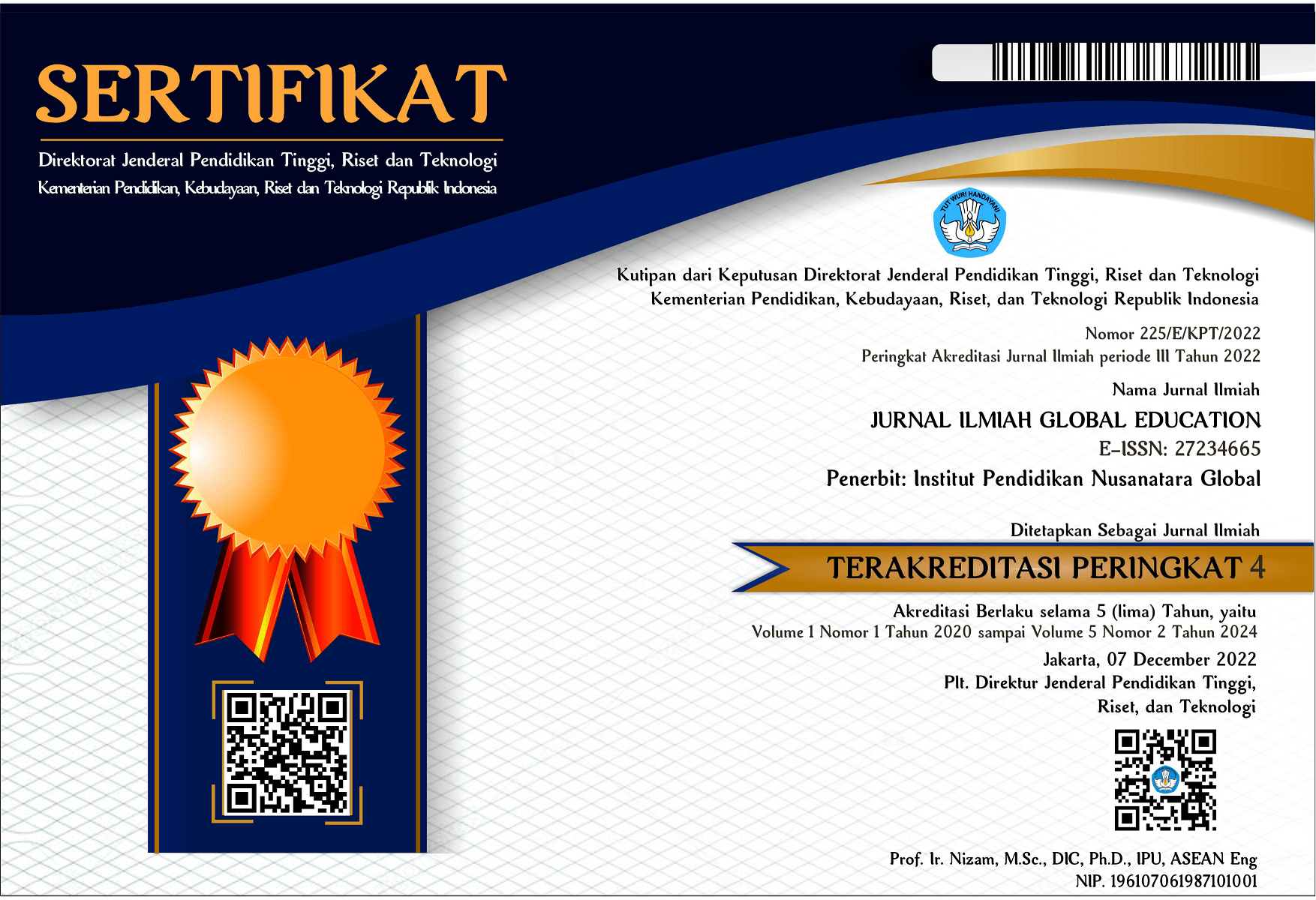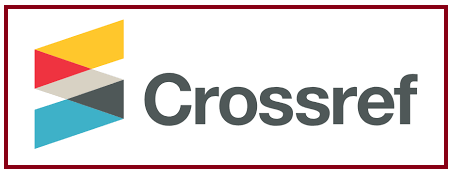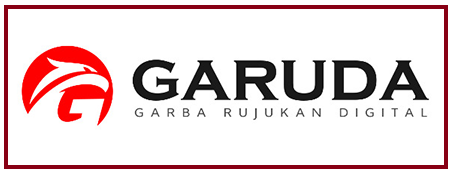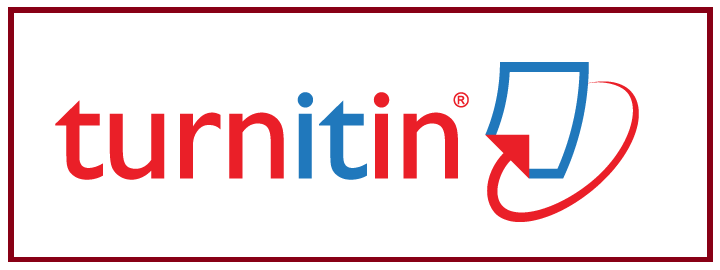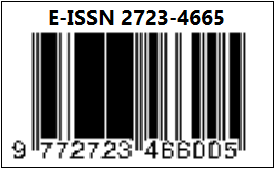HUBUNGAN KONTROL DIRI DENGAN ADIKSI MEDIA SOSIAL TIKTOK PADA SISWA KELAS X SMAN 11 JAKARTA
DOI:
https://doi.org/10.55681/jige.v4i4.1360Keywords:
Addiction, self - controlAbstract
This study aims to determine the relationship between self-control and addiction to the social media TikTok in class X students of SMAN 11 Jakarta in the 2022/2023 academic year. The research method used in this study is a correlational quantitative research method to be able to see the relationship between x and y variables. The population used in this study were students of class X, totaling 216 students consisting of 6 classes (classes X1, X2, X3, X4, X5, and X6). The sampling technique in this study used a simple random sampling technique. The results of the study show that the hypothesis is accepted, meaning that there is a relationship between the x variable and the y variable. It can be seen from the results of hypothesis testing using the product moment correlation, the sig value is obtained. 0.001. Decision making based on product moment correlation test criteria is if the sig. <0.05 then correlate. Based on the results of the product moment correlation test in the table above, it can be seen that the sig. 0.001 <0.05 which means that the addiction variable with self-control variables is correlated. As for the Pearson Correlation value, it was obtained at 0.658. So it can be seen that the social media addiction variable of TikTok and the self-control variable have the same strong correlation.
Downloads
References
Aprilia, A. D. (2019). Hubungan Antara Kontrol Diri dengan Kecanduan Media Sosial (Instagram) Pada Remaja di SMAN Harapan 1 Medan. Universitas Medan Area.
Aprilia, R., Sriati, A., & Hendrawati, S. (2020). Tingkat Kecanduan Media Sosial pada Remaja. JNC,
Andreassen, C. S., Pallesen, S., & Griffiths, M. D. (2017). The relationship between addictive use of social media, narcissism, and self-esteem: Findings from a large national survey. Addictive Behaviors, 64, 287–293. https://doi.org/10.1016/j.addbeh.2016.03.006
Ghufron, & Risnawita. (2012). Teori-Teori Psikologi.
Hurlock, Elizabeth B. 2006. Psikologi Perkembangan. Jakarta.: Erlangga.
Idris, F., Sinring, A., Pandang, A., Bimbingan, J., & Konseling, D. (n.d.). Addictive behavioral treatment of tiktok apps user (A Case Study on One Student at Faculty of Science Education Makassar State University
Riduwan. 2013. Belajar Mudah Penelitian Untuk Guru Karyawan dan Penelitian Pemula. Bandung: Alfabeta
Suryani, F.L., & Suwarti, C.H.D. (2014). Instagram dan fashion remaja (studi kasus peran media sosial instagram terhadap trend fashion remaja dalam akun @ootdindo Tahun 2014)
Syamsoedin, W. K. P., Bidjuni, H., & Wowiling, F. (2015). Hubungan Durasi Penggunaan Media Sosial dengan Kejadian Insomnia Pada Remaja di SMA Negeri 9 Manado. Jurnal Keperawatan,
Young, K. (2017). Kecanduan Internet
Zaputri, M. (2021). Dampak Kecanduan Media Sosial TikTok Terhadap Perilaku Belajar Mahasiswa Bimbingan dan Konseling IAIN Batusangkar. Batusangkar.
Downloads
Published
How to Cite
Issue
Section
License
Copyright (c) 2023 JURNAL ILMIAH GLOBAL EDUCATION

This work is licensed under a Creative Commons Attribution-ShareAlike 4.0 International License.


